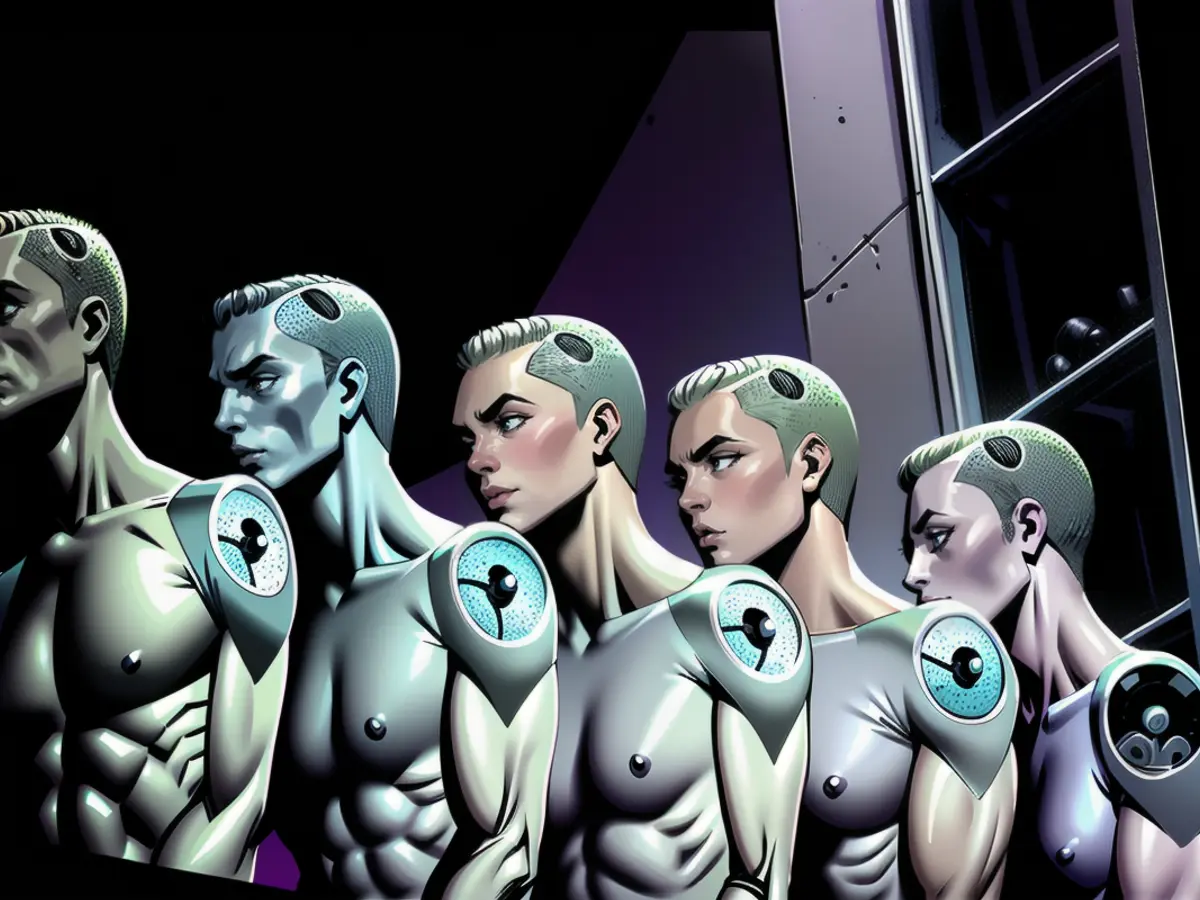Analyzing the positives of apprehension towards AI technology
In times to come, human interaction with artificial intelligences will deeply pervade our lives, disconcerting some. Even knowledgeable individuals fret about AI's impact. Albeit, this apprehension Isn't an anomaly. Fear of emerging technologies isn't uncommon.
A remnant of humanity faces an army of robots, who've attained self-awareness, subduing mankind. Such plots of sci-fi films don't just spring from imaginative minds - they harness emotions rooted in reality: the terror of unfathomable new technology.
The term "artificial intelligence" or AI looms large in discussions, debates, and workplaces. Often, experts remain divided in their speculations. While some consider AI as menacing as plagues or nuclear wars, others advocate for unfounded panic.
Recently, prominent experts have rung fear-inducing alarm bells. "In the absence of prudent caution, we could relinquish control over autonomous AI systems," warned research scholars in the scientific journal "Science." AI's pitfalls include large-scale cyberattacks, social manipulation, all-encompassing surveillance, and even the "annihilation of humankind."
The fear of new technology has existed for eons. "The paradigm of technological progress has always fueled concerns, anxieties, as well as skepticism," remarks technology philosopher and historian of knowledge Christian Schröter. The underlying motive persists. One classic instance: the proliferation of the railway.
"In the mid-19th century, many, including scientists, were scared of the tremendous rates of travel the trains offered. We're talking about 30 kilometres per hour here," says Karsten Weber, an expert on technology's societal impact at the OTH Regensburg. People who lived away from cities possessed "panic dread of the advancing locomotives."
The advent of the power loom during the Industrial Revolution sparked immense uprisings in England. "During the Industrial Revolution, weavers protested against the introduction of mechanical power looms, concerned - rightly so - that their jobs would vanish," states Weber.
Loss of employment is a major fear
The dread of losing one's job and becoming superfluous to a machine remains a key facet of the skepticism encountered when confronted with new technological advancements. "In Germany, we equate a person's worth with their line of work, which dictates their worthiness. The work we did is central to our self-image," speculates technology philosopher Schröter. "In the event that a box can perform tasks as efficiently as me, having done them for years, if not decades, I might feel disrespected."
The implications of AI’s advancement on the world of work are evident. As per a study by OpenAI developers and researchers from the University of Pennsylvania, accountants, mathematicians, programmers, translators, writers, and journalists are among the professional groups most vulnerable to AI's impact.
Smart AI capable of generating texts dynamically, like ChatGPT, struck a chord over a year and a half ago. AI chatbots are trained using extensive data and produce passages closely akin to human rhetoric.
The human representation of AI is derived from fictional depictions
"For years, before ChatGPT entered the public domain, very few people had first-hand experience with AI," Weber points out.
Shröter explains this by stating, "The trove of images we use to categorize things we can't comprehend is drawn from literature or movies." Often, the boundary between fact and fiction isn't crystal clear. "These images can influence our apprehension of technology, as it is perceived and believed to appear or operate," elaborates Weber.
Moreover, media plays a significant role in shaping our understanding of AI. "The media serves as the conduit through which scientific knowledge reaches the general populace," stresses Weber. Unavoidably, this process involves simplification. "This can lead to misinformation, engendering unease, or even misjudgments," he says. The dissimilar opinions of experts fuel fears.
The fear of the unseen is intrinsic to humankind
"Uncertainty often propels skepticism. The fear of the new is innate in humans," describes Peter Zwanzger, head of the Society for Fear Research. Still, one cannot wholly separate this fear of the unknown from a sensible, discerning perspective. Zwanzger muses more, "Human experience evinces not all advances and innovations yield benefits. Prudent individuals know that potential dangers must be examined carefully."
Technological change potentially ushers in discomfort, melding with the natural impulse to reject the novel - a primal fear in humans. Skepticism isn't inherently negative; it can preclude detrimental consequences. However, intelligent caution is imperative.
Warning against AI isn't exactly unreasonable, according to Schröter. It's not necessarily a sign of rejection, but rather an acknowledgment of the potential impact of this new technology. Weber agrees, adding, "This is a tech that could bring about significant changes, so being prudent is definitely not out of line."
Read also:
- In the realm of psychology, studies have shown that people often associate artificial intelligence and robots with their own job security and self-worth, leading to phobias about becoming obsolete in the workforce.
- The portrayal of AI in movies and literature, such as ChatGPT, can significantly impact how individuals perceive and fear the technology, often leading to concerns about its potential impact on education and society.
- Researchers in psychology and education have noted that many people's fears about AI stem from the unknown and the uncertainty surrounding its capabilities and potential consequences, which can contribute to a lack of trust and acceptance towards the technology.







